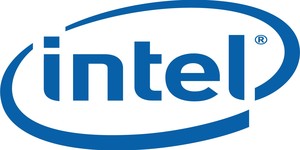
Google has announced that it is to cease sales of its Glass wearable computing system, but claims the the project is still alive and well as a dedicated team within the company.
Announced in April 2012, Google Glass was born from Google[x], the company's secretive in-house think-tank. Released in small numbers to celebrities and other specially-chosen early adopters, it became an official product for the US a year later under the Google Glass Explorer programme. For $1,500, each Explorer received a Google Glass unit which boasted a customised version of the company's Android operating system and a head-up display positioned to the upper edge of the wearer's vision. In June 2014, the device came to the UK, priced at £1,000 with 2GB of RAM to the original's 1GB.
Anyone who hasn't yet picked up a Glass headset and would like to do so, however, is advised to hurry up. 'We’re closing the Explorer Program so we can focus on what’s coming next,' Google's Glass team announced in a post late last night. 'January 19 will be the last day to get the Glass Explorer Edition.'
Google has denied that the closure of the Glass Explorer programme and removal from sale of the existing Glass headsets constitutes a failure of the project, however. 'As we look to the road ahead, we realise that we’ve outgrown the lab and so we’re officially 'graduating' from Google[x] to be our own team here at Google,' the project group explained. 'We’re thrilled to be moving even more from concept to reality.'
The new team is being led by current manager Ivy Ross, who will report directly to Tony Fadell. Best known for Nest, the home automation start-up acquired by Google last year, Fadell will be in overall control of the project's future - but neither he, Ross nor Google itself have offered any clues as to what is next for the project nor when next-generation hardware is likely to appear for purchase.
The closure of the Glass Explorer programme comes as Google announces plans to launch a trial of its Project Ara modular smartphone in Puerto Rico later this year. The device, based on the Phonebloks concept and first developed by Motorola Mobility prior to its acquisition by Google, will launch in the region later this year under the name Spiral 2 with around 30 modules launching throughout the year.
Announced in April 2012, Google Glass was born from Google[x], the company's secretive in-house think-tank. Released in small numbers to celebrities and other specially-chosen early adopters, it became an official product for the US a year later under the Google Glass Explorer programme. For $1,500, each Explorer received a Google Glass unit which boasted a customised version of the company's Android operating system and a head-up display positioned to the upper edge of the wearer's vision. In June 2014, the device came to the UK, priced at £1,000 with 2GB of RAM to the original's 1GB.
Anyone who hasn't yet picked up a Glass headset and would like to do so, however, is advised to hurry up. 'We’re closing the Explorer Program so we can focus on what’s coming next,' Google's Glass team announced in a post late last night. 'January 19 will be the last day to get the Glass Explorer Edition.'
Google has denied that the closure of the Glass Explorer programme and removal from sale of the existing Glass headsets constitutes a failure of the project, however. 'As we look to the road ahead, we realise that we’ve outgrown the lab and so we’re officially 'graduating' from Google[x] to be our own team here at Google,' the project group explained. 'We’re thrilled to be moving even more from concept to reality.'
The new team is being led by current manager Ivy Ross, who will report directly to Tony Fadell. Best known for Nest, the home automation start-up acquired by Google last year, Fadell will be in overall control of the project's future - but neither he, Ross nor Google itself have offered any clues as to what is next for the project nor when next-generation hardware is likely to appear for purchase.
The closure of the Glass Explorer programme comes as Google announces plans to launch a trial of its Project Ara modular smartphone in Puerto Rico later this year. The device, based on the Phonebloks concept and first developed by Motorola Mobility prior to its acquisition by Google, will launch in the region later this year under the name Spiral 2 with around 30 modules launching throughout the year.

MSI MPG Velox 100R Chassis Review
October 14 2021 | 15:04








Want to comment? Please log in.